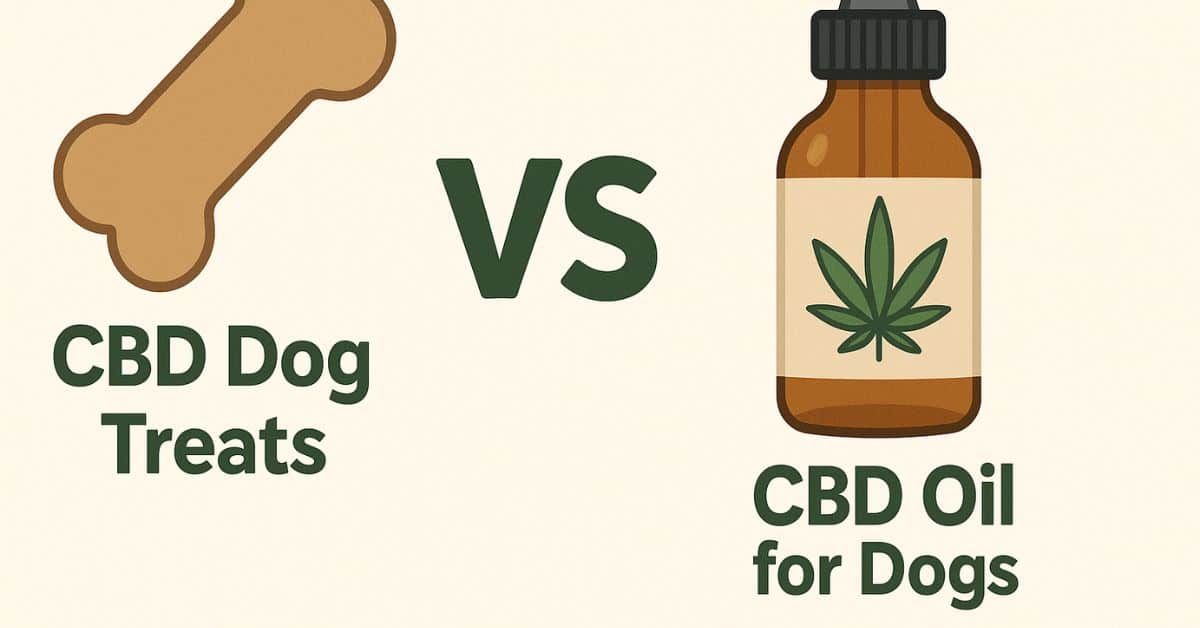Nausea in dogs can be triggered by many things, from motion sickness and stress to dietary changes or underlying health issues.
It’s not only unpleasant for your dog but also concerning for pet owners who want to help their furry companion feel better. While traditional anti-nausea medications exist, they can come with side effects or may not be suitable for every dog.
That’s why more pet owners in Canada are turning to CBD as a natural, gentle option to ease nausea and support digestion. In this guide, we’ll explore what causes nausea in dogs, how CBD may help, and how to use it safely.
What Is Nausea in Dogs and What Does It Look Like
Nausea in dogs refers to the feeling of queasiness or the urge to vomit, similar to what humans experience. While dogs can’t tell us when they feel nauseous, they often show clear physical and behavioral signs that something isn’t right. Nausea can range from mild discomfort to more serious digestive upset, and it’s often a symptom of an underlying issue rather than a condition on its own.
Common signs of nausea in dogs include:
- Excessive drooling
- Frequent licking of lips or swallowing
- Loss of appetite
- Dry heaving or vomiting
- Eating grass (sometimes as a self-soothing behavior)
- Whining, pacing, or restlessness
- Lethargy or avoiding food altogether
In some cases, nausea is short-lived, triggered by motion sickness, a new food, or temporary stomach upset. But if symptoms persist or worsen, it may point to something more serious like gastrointestinal issues, anxiety, or a reaction to medication.
Common Causes of Nausea in Dogs
There are many potential reasons why a dog might experience nausea:
- Motion Sickness: Especially common in puppies and dogs unaccustomed to car rides.
- Medications: Some medications, like antibiotics or chemotherapy drugs, can upset the stomach.
- Gastrointestinal Conditions: Pancreatitis, inflammatory bowel disease, or parasites can trigger nausea.
- Dietary Issues: Sudden food changes, spoiled food, or eating something toxic can all result in stomach upset.
- Kidney or Liver Disease: Chronic illnesses may interfere with digestion and toxin filtering.
- Stress or Anxiety: Some dogs respond to emotional stress with physical symptoms like nausea and vomiting.
- Overeating or Eating Too Quickly: Ingesting food too fast can upset the stomach.
Understanding the root cause is crucial, especially if nausea occurs frequently or is accompanied by other symptoms.
How It Affects Dogs
Nausea can significantly impact your dog’s quality of life. Dogs don’t have the ability to express their discomfort in words, so it’s up to pet owners to watch for signs and respond appropriately.
Signs of Nausea in Dogs
Some dogs may show very subtle signs, while others are more dramatic. Look for:
- Lip-smacking or excessive swallowing
- Drooling
- Grass eating (to trigger vomiting)
- Licking the floor or furniture
- Whining or pacing
- Lack of interest in food
- Vomiting (foamy bile or food)
- Gulping or gagging sounds
Consequences of Untreated Nausea
If left untreated, chronic or frequent nausea can cause:
- Dehydration from vomiting or refusing water
- Weight loss due to appetite loss
- Malnutrition and lack of key nutrients
- Weakened immune function
- Behavioral changes, such as lethargy or aggression
For puppies, senior dogs, or dogs with underlying conditions, nausea can quickly escalate into a serious concern.
Bottom Line
CBD may offer a gentle, natural way to relieve nausea in dogsvwhether it’s caused by motion sickness, stress, digestive issues, or medication side effects.
By supporting the endocannabinoid system, CBD may help calm the stomach, reduce vomiting, and improve appetite without harsh side effects.
Always choose a pet-safe, high-quality product and consult your veterinarian, especially if your dog’s symptoms persist. With the right approach, CBD can be a helpful addition to your dog’s wellness routine when nausea strikes.









